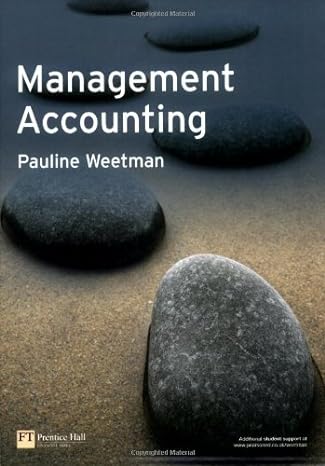The purchasing manager of a manufacturing business knows that its total production requirement for raw materials will
Question:
The purchasing manager of a manufacturing business knows that its total production requirement for raw materials will be 7,200 units per month. Each unit has a price of £10. The cost of holding stocks of raw materials is £3 per unit per month. The cost of ordering is £9 per order.
The purchasing manager has asked for your advice on two situations facing the business.
Situation 1
The supplier has offered 1% discount on the price of each unit of raw material provided at least 100 units are ordered each time an order is placed.
Situation 2
It is expected that when the next order is placed, lead-time may vary due to transport difficulties.
To cover this uncertainty it is proposed to hold a buffer stock for one month.
The amount ordered will be 60 units. Demand is linear with respect to time. Assume there are 30 days in a month.
The range of possible lead-times and the likelihood of occurrence of each are as follows:![]()
The costs of holding stock are expected to remain at £3 per unit per month. The cost of running short of stock is estimated at £20 per unit per day.
(a) Show that, before considering Situation 1 or Situation 2, the economic order quantity is 60 units and state the assumptions of your calculation.
(b) In Situation 1:
(i) Advise the purchasing manager on whether to accept the supplier’s offer.
(ii) Calculate the discount rate which would make the purchasing manager indifferent between ordering 60 units and ordering 100 units.
(c) In Situation 2:
Establish the total cost of holding stock and of running short of stock for buffer levels of 60 units, 40 units, 20 units and zero units respectively, in each case held for one month.
Step by Step Answer:






